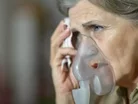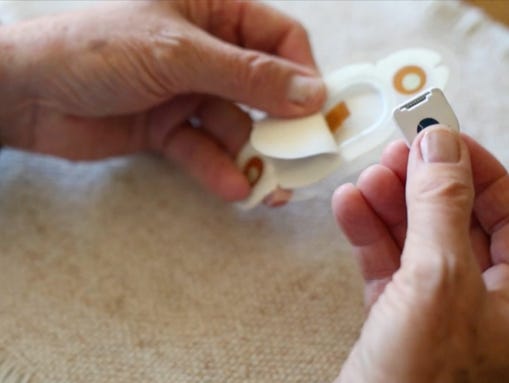Can Philips Bring Hope to Those With Chronic Illness through Wearable Technology?

While wearable technology in the health care industry has been on the rise, the number of individuals who could benefit the most from using these health trackers and gadgets is still low.
Royal Philips (NYSE: PHG, AEX: PHIA) and Nijmegen, the Netherlands-based Radboud university medical center (Radboudmc), are working to raise that number through a prototype that supports patients with chronic obstructive pulmonary disease (COPD). The device would let patients know what condition their heart and lungs were at any time and medical staff would have a complete set of data between visits.
“Unlike other wearable solutions recently introduced to the market, this prototype collects more than just wellness data from otherwise healthy people,” said Jeroen Tas, CEO, Healthcare Informatics Solutions and Services, Philips. “We are demonstrating the power of harnessing both clinical and personal health information to better manage chronic disease patients across the health continuum, from healthy living, prevention, diagnosis, treatment, recovery and home care.”

A sensor is attached to a disposable adhesive bandage, monitoring COPD patients. (Philips photo)
How It Works
The wearable diagnostic prototype for COPD patients feeds data collected from patients at home to clinicians through the Philips HealthSuite Digital Platform to two clinical applications currently available on the cloud-based platform – eCareCompanion and eCareCoordinator – which both recently received FDA 510(k) clearance.
Once a COPD patient has left the hospital, a wearable diagnostic prototype collects data day and night, including physical activity/inactivity, respiratory indicator, heart rhythm and heart rate variability. The data collected is then sent via the cloud to the Philips HealthSuite Digital Platform, where it is shared with the appropriate care providers via the eCareCoordinator application, presenting a more complete view of the patient’s illness.
“Together with Philips, we are exploring and developing tools to enable patients to be true partners in their own health care, including Hereismydata(TM) and thus creating a digital platform for patients to collect data from EMRs as well as personal wearable technology,” said Lucien Engelen, director REshape Innovation Center at Radboud university medical center. “Our collaboration with Philips creates the scale needed for a globalizing sustainable healthcare approach.”
A Beneficial Partnership
The launch marks the start of joint explorations between Philips and Radboudmc to apply mobile, digital and cloud technologies to improve patient outcomes, care coordination and patient empowerment across the health continuum.
According to the U.S. Centers for Disease Control and Prevention (CDC), 117 million Americans have at least one chronic condition, and one in four adults has two or more. The CDC estimates that caring for patients with chronic conditions accounts for 70 percent of the annual health care income in the U.S.



